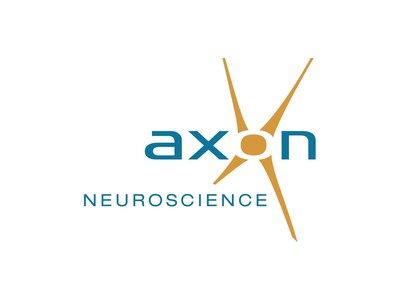Active Tau Vaccine Expands Phase 1 Trial Size
AADvac1 has shown potential in preventing the progress of neuropathies and Alzheimer's disease.

A tau vaccine for patients with non-fluent variant of Primary Progressive Aphasia (nfvPPA) has returned reassuring safety results in a Phase 1 study that will now open to more patient recruitment.
The vaccine (AADvac1) from AXON Neuroscience, which has held potential in preventing the accumulating protein in the neurons of patients with neurodegenerative diseases, was assessed in its first ever high-dose administration in human patients in August. A supplemental safety data evaluation decided there were no safety concerns, and that enrollment for both regular and high dose arms can expand to the planned 30 patients.
AADvac1 is an active vaccine, which is design to work by eliciting immune responses which block pathological tau aggregation and spreading, as well as eliminate the formation of neurofibrillary pathology. The end result is preventing cognitive and functional decline in patients, and stopping the progression of tauopathies and Alzheimer’s disease (AD).
All tauopathies, including nfvPPA, are considered rare diseases. The disorder nfvPPA is a frontotemporal lobar degeneration, driven by tau pathology. A prominent, isolated language deficit is formed in the wake of nfvPPA’s manifestation, and it could develop to progressive speech impairment in patients. Patients also experience cognitive and motor function issues.
In preclinical studies and a completed phase 1 study in patients with AD, AADvac1 antibodies have shown a treatment potential for all tauopathies. The AD trial, completed in 2015, was the first human trial of an active tau vaccine.
The investigative disease-modifying therapy (DMT) for patients with mild-to-moderate AD displayed a “very favorable safety profile,” versus placebo, according to Axon.
“Targeting tau pathology via immunotherapy did not induce abnormal accumulation of fluid and inflammation in the brain commonly observed with anti-amyloid antibodies,” the company stated in a press release at the time. “The safety of AADvac1 is the first positive milestone in the treatment of Alzheimer’s disease, since many late phase trials have failed due to severe side effects in patients.”
Success in the nfvPPA phase 1 trial could lead into an immediate pivotal phase 2 study for larger indications such as corticobasal degeneration (CBD) or progressive Supranuclear Palsy (PSP), according to AXON.
Markus Otto, MD, a coordinating investigator for nfvPPA study, noted there was high demand for a DMT in the condition’s field.
“I am extremely pleased that we can continue with the recruitment of additional patients for our study in non-fluent primary progressive aphasias,” Otto said. “Based on the strong preclinical data we have solid hope that this vaccine has potential to treat this rare disease."
As the phase 1 trial progresses, AXON noted the vaccine could eventually qualify for orphan designation in both US and Europe regulatory applications for any tauopathy indications.
A phase 2 study of AADvac1 for its cognitive efficacy in patients with AD (ADAMANT) is expected to release results in 2019.